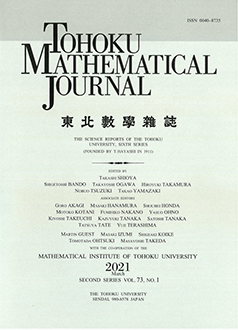Abstract
We apply results of Harada, Holm and Henriques to prove that the Atiyah-Segal equivariant complex $K$-theory ring of a divisive weighted projective space (which is singular for non-trivial weights) is isomorphic to the ring of integral piecewise Laurent polynomials on the associated fan. Analogues of this description hold for other complex-oriented equivariant cohomology theories, as we confirm in the case of homotopical complex cobordism, which is the universal example. We also prove that the Borel versions of the equivariant $K$-theory and complex cobordism rings of more general singular toric varieties, namely those whose integral cohomology is concentrated in even dimensions, are isomorphic to rings of appropriate piecewise formal power series. Finally, we confirm the corresponding descriptions for any smooth, compact, projective toric variety, and rewrite them in a face ring context. In many cases our results agree with those of Vezzosi and Vistoli for algebraic $K$-theory, Anderson and Payne for operational $K$-theory, Krishna and Uma for algebraic cobordism, and Gonzalez and Karu for operational cobordism; as we proceed, we summarize the details of these coincidences.
Citation
Megumi Harada. Tara S. Holm. Nigel Ray. Gareth Williams. "The equivariant $K$-theory and cobordism rings of divisive weighted projective spaces." Tohoku Math. J. (2) 68 (4) 487 - 513, 2016. https://doi.org/10.2748/tmj/1486177213
Information





